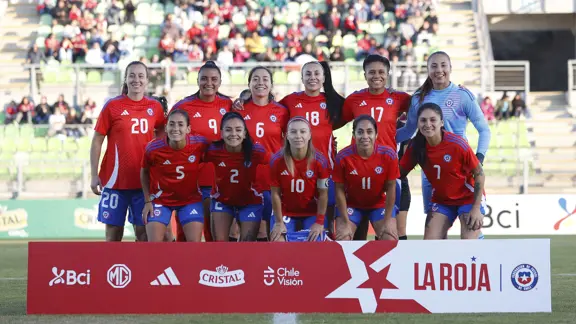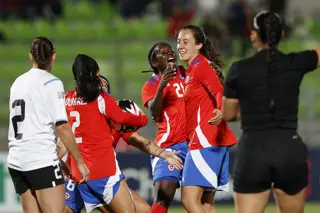News
Historic level-playing field agreement for Chilean internationals

- With the support of ANJUFF, Chilean players signed an agreement with the federation to improve working conditions
- The agreement ensures minimum conditions in preparation and labour rights for the Copa America Femenina Brazil 2025
- "For us, it's something historic," Chile captain Yanara Aedo told FIFPRO
In a historic event for the country, and thanks to the key support of the National Association of Women's Football Players (ANJUFF), Chile's international players closed 2024 with news that was as long awaited as it was extraordinary: the signing of an equity agreement with the Chilean federation that ensures minimum conditions in preparation and labour rights for the Copa America Femenina Brazil 2025.
The agreement is the result of several months of work and negotiation between the players, ANJUFF and the federation (ANFP) and seeks to close the existing gap between men's and women's football.
"For us, it's something historic because it guarantees us conditions to be able to perform and prepare ourselves in an ideal way," Yanara Aedo, captain of the Chilean national team, told FIFPRO.
"The truth is that we have been through everything, obviously as a national team it has been a big struggle and now that we have achieved what we expected, we are happy because it will clearly have a positive impact. As a group today we have something agreed with the federation that guarantees us to be able to perform in the best possible way."
Fernanda Pinilla, a member of the Chilean team that qualified for their first Women's World Cup in 2019, said: "As players, we felt the need to start a dialogue with the federation to ensure minimum conditions such as infrastructure, travel, accommodation and professionals who work with us.
"In recent months, together with ANJUFF, we have been in meetings with the federation to draw up a joint agreement to ensure a minimum base for this and future generations of the Chilean national team."
The willingness of ANFP to listen to the demands and reach an understanding is something that both Pinilla and Aedo highlight: "For us, it's important because very few teams have such agreements with their federations, so we are very happy that they were also open to reach this," said Aedo, who has played for the likes of Valencia and Sevilla in Spain and in USA's NWSL.
Within the FIFPRO Americas Division, Costa Rica reached an agreement in February 2024 that equalises the conditions given to the men's and women's national teams for the upcoming World Cup qualifying process.
The agreement between Chilean internationals and ANFP is also the starting point of a process that will seek to close a new agreement with further improvements, which will include issues such as maternity, mental health and greater accessibility for fans, as well as incorporating international best practices, inspired by successful countries such as Australia, USA, New Zealand and Sweden.
"The long-term goal is to be able to address equally important issues such as maternity in national teams and to standardise things to cover all categories of national teams," said Aedo, who understands that this will require a new negotiation process.
"We know it's little by little. Obviously we would like to do it as soon as possible, but we understand that these are issues that perhaps take a little more time."

'A generation that has pushed for important changes'
As with every step forward in Chilean women's football, ANJUFF played a key role in the agreement reached.
"It is undoubtedly a milestone," said ANJUFF Director Camila García. "This is a generation that has pushed for important changes, but one that is not satisfied and wants to continue fighting with the main powers at international level. That requires raising the standards and that is what this agreement does initially: to close the gaps and provide greater equity in the treatment of the teams.
"We see this agreement not only as a step but also as a declaration of intent and a commitment on the part of the federation to provide better and greater resources to La Roja. In addition, as a collective there is an important sense of pride in trying to leave something for the next generations."
